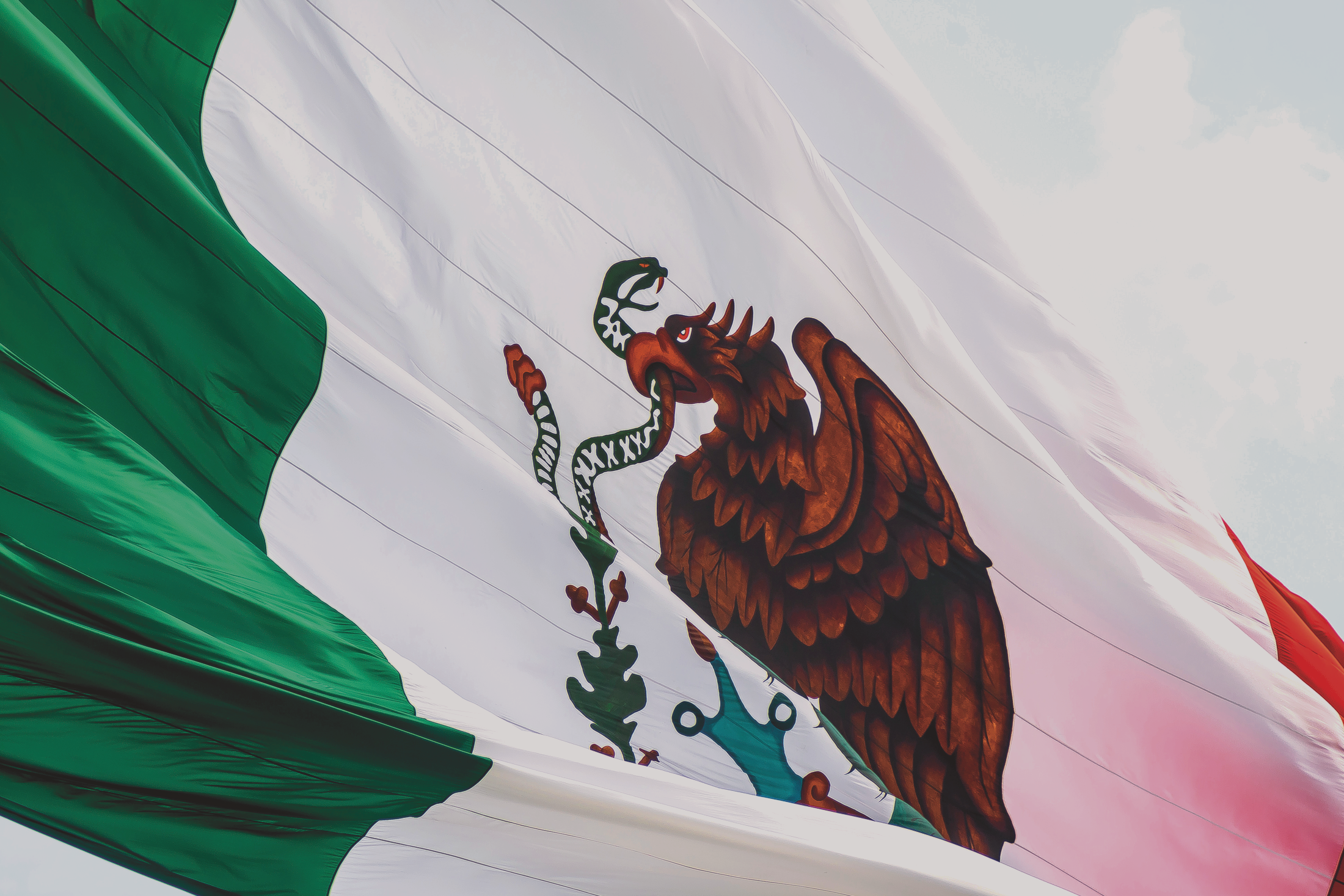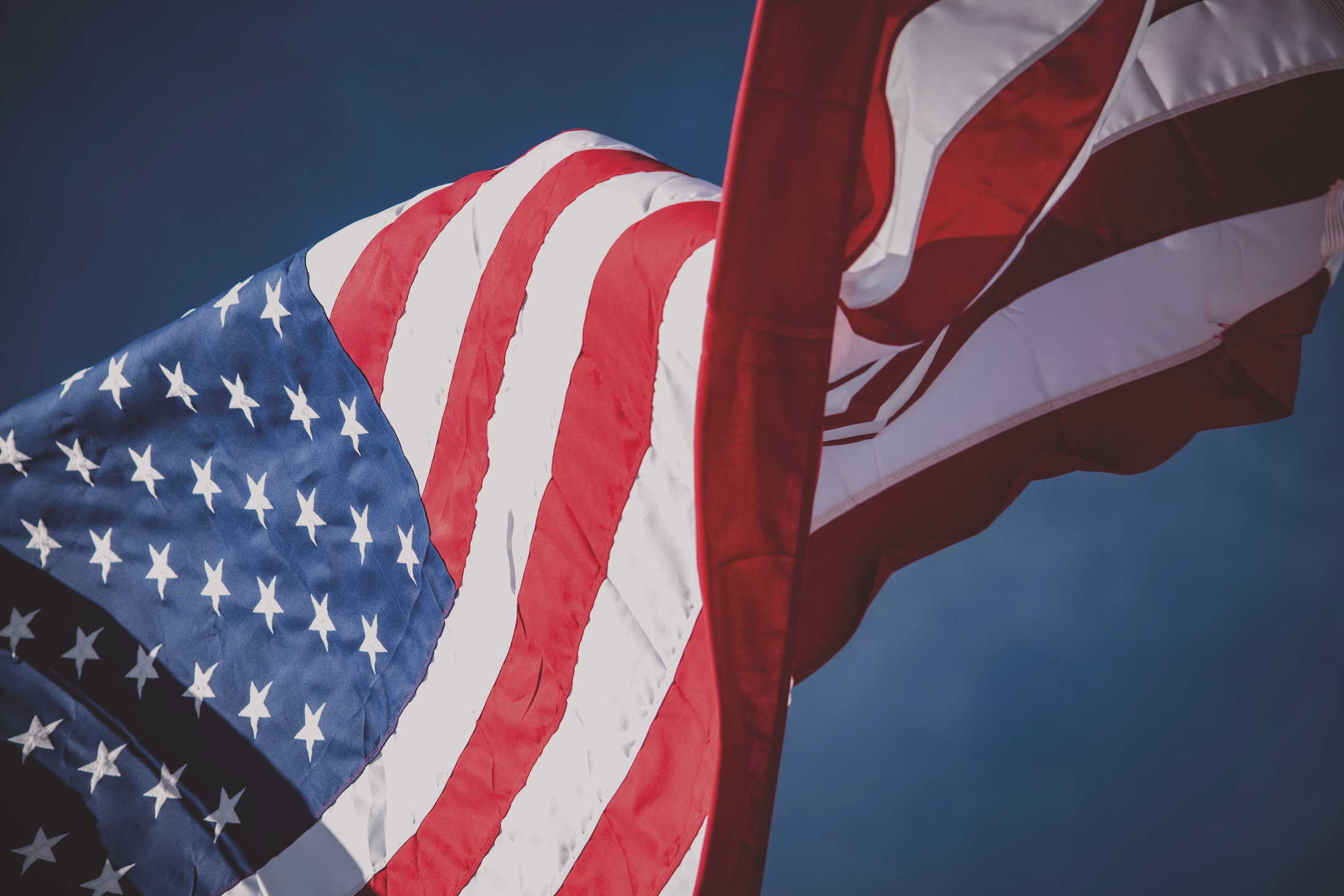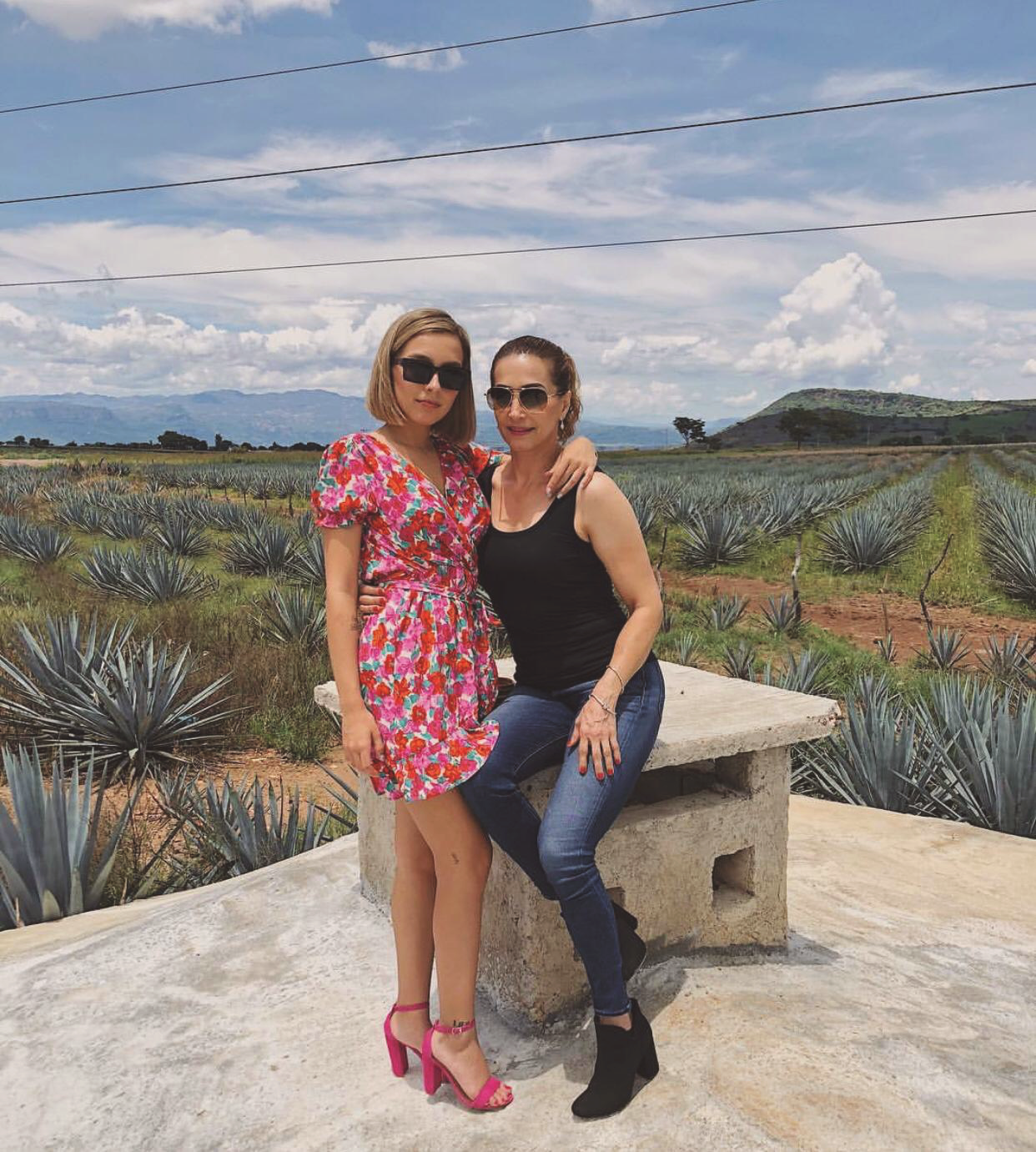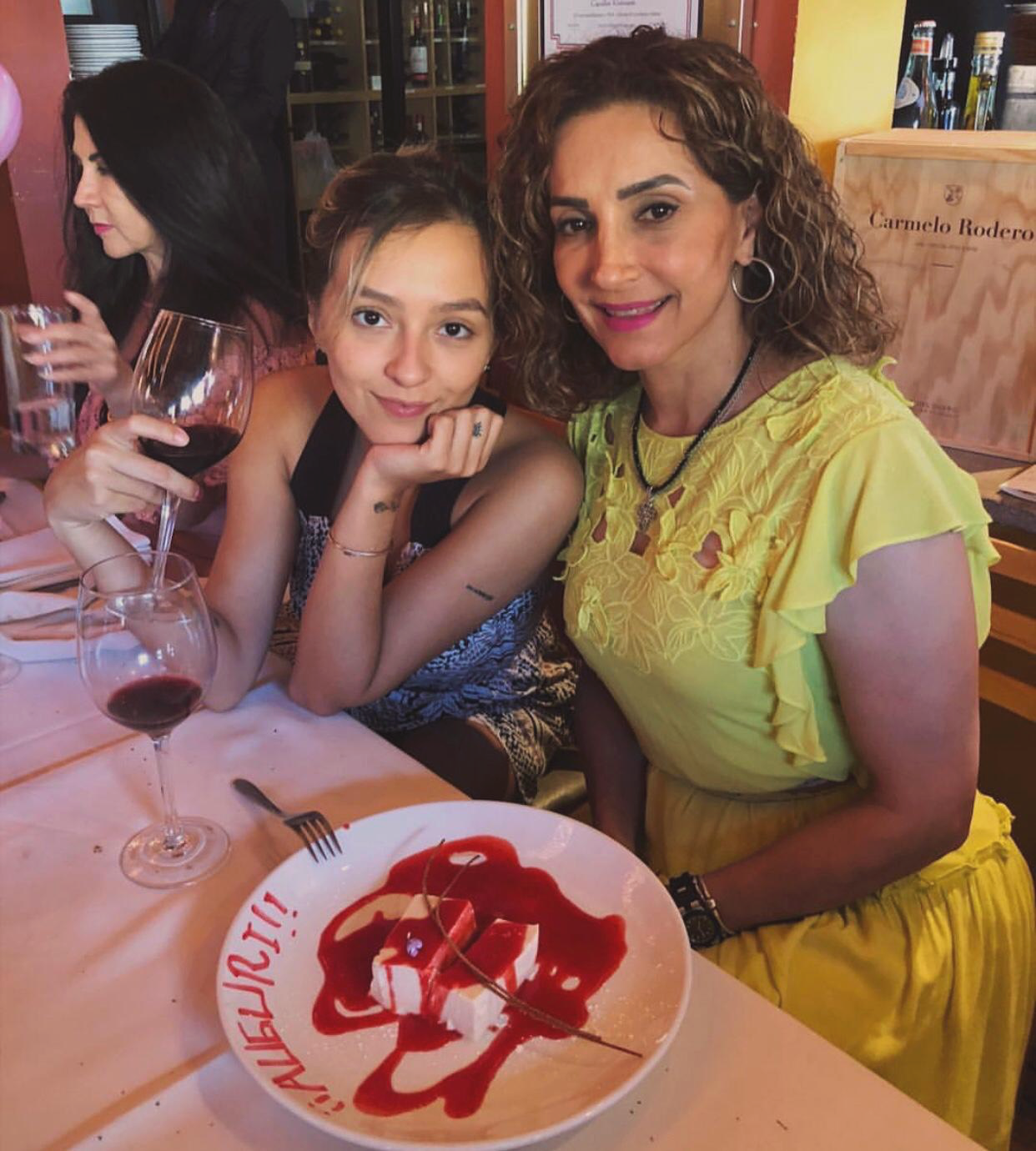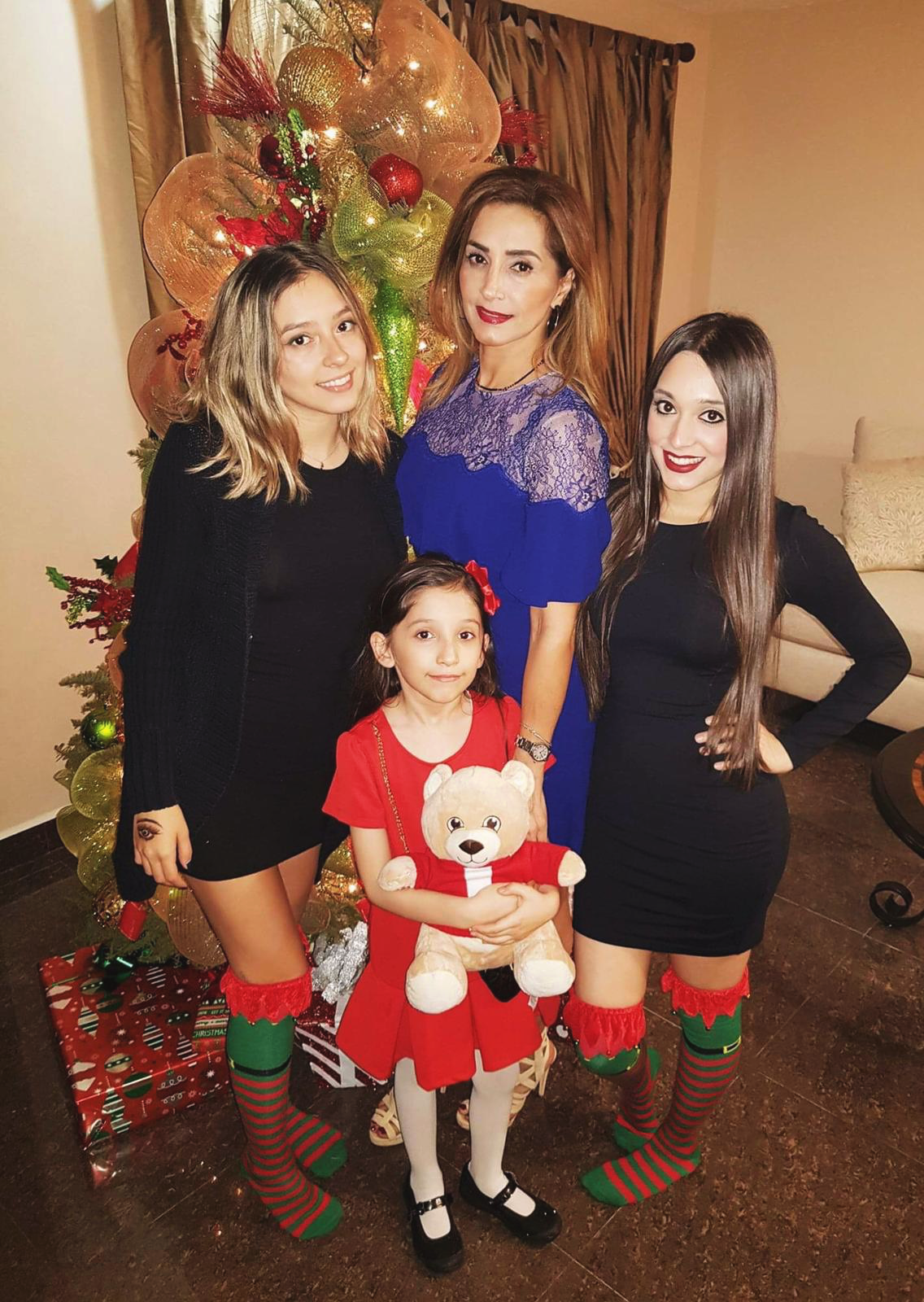BY ANOTHER NAME
Family separation existed in the U.S. long before Donald Trump—here’s one family’s story.
By Hannah Wiley
Ana Valle bears an uncanny resemblance to her mother, Fernanda Treviño. Both women are tall and slender, with striking features, expressive eyes, a daring beauty and commanding presence. They each speak about current events and politics with admirable fluency and have a special fondness for social issues.
What distinguishes the pair isn’t just Treviño’s long curly hair to her daughter’s straight, or a maternal distaste for Valle’s several tattoos, visibly scattered down the 21-year-old’s arms — an eye on her middle left finger from a trip she took to Austin, Texas with her high school friends, a rose on her left wrist a cousin designed, “enjoy the little things” inscribed on her right forearm, to name a few.
Valle and Treviño, 49, are on opposite sides of the United States-Mexico border.
A decade before the U.S. endured its longest government shutdown in history over border wall funding, years before President Donald Trump’s administration initiated the since-overturned “zero-tolerance” policy of separating newly arrived migrant families along the southern border, there was a day when Treviño didn’t come home to Valle, then 10, and her older sister Marifer, then 16.
In March 2008, the family was living in McAllen, Texas, a border town in the Rio Grande Valley a stone’s throw away from Reynosa, Mexico, a 30-minute drive on most days as long as traffic isn’t too heavy. McAllen and Reynosa have been called “sister cities” by local officials who rely on the mutually beneficial trade and labour system to stabilize the community’s economic vitality. La Plaza shopping mall in McAllen is a main attraction for Mexican shoppers who take advantage of a lower sales tax. In 2017, Nancy Millar, vice president of McAllen’s Convention and Visitors Bureau, said that Mexican shoppers contributed nearly $1 billion to the McAllen economy. And Reynosa and McAllen are auto trading hubs for the two countries, which is why international companies are currently eyeing the Valley for new business ventures.
The population is 85 percent Hispanic, with many of the 138,000 residents able to trace their ancestry back to a time when Texas was still Mexico. Friends switch back and forth between Spanish and English, and families come together over traditional Mexican recipes passed down for generations. As Valle notes, McAllen is “Mexico in America.”
The fluidity between the long-time allies, separated by the Rio Grande, is part of what makes this pocket of the U.S. so unique, but what makes the Mexican government so vulnerable to the ire of the current American administration. People slip through the cracks, and Mexico is a favourite scapegoat in the blame game. Trump has increasingly pressured Mexican authorities to stem the flow of migrants traveling through Mexico from the Northern Triangle—Honduras, Guatemala and El Salvador—that would prevent thousands of people from ending up on the United States’ doorstep. He’s encouraged his southern neighbors to employ harsher tactics to do so, like turning around organized caravans or denying migrants who want to claim asylum the chance to enter the U.S.
Treviño was not trekking the perilous journey, often thousands of miles, to claim asylum in the U.S., nor was she looking for work, two common pursuits that drive Central Americans north. Instead, 10 years ago, she found herself entangled in a visa snag. She’d been illegally living in McAllen for more than a decade, renting a home and using a visa that authorized her to work in the U.S. Instead, Treviño was working as a journalist in Reynosa—one of the most dangerous cities in the country with a high travel advisory risk—and she called McAllen home, the exact opposite of the visa’s parameters. She was divorced, her ex-husband having already moved back to Reynosa, and she was living with her two young daughters.
“I was working all day in Reynosa,” Treviño explained, “And then I tried to return to McAllen, and the Customs and Border Protection officer had my address and some other personal information about me.”
Barred from reentering the country, with an eight-year reentry restriction as punishment attached to the crime, Treviño was turned away from the bridge, a wave of fear and sadness settling over her as she realized she wouldn’t be able to go home, and that she no longer had everything she had spent years building in McAllen.
“I didn’t have a life. I had a career, but no family.”
She hasn’t re-crossed the bridge since. Economically, it wasn’t hard for Treviño to get on her feet, she says. But emotionally, it was.
“I didn’t have a life (in Reynosa),” she says, tapping her hand on her chest. “I had a career, but no family.”
Although barely a pre-teen at the time and confused with the sudden move to her aunt’s house in McAllen, Valle says she now understands how challenging the situation was for her mother. The ordeal extended beyond residence; it sent a years-long ripple effect that dismantled everything the family had built in the U.S.
“My mom did really get into to the American culture,” Valle says. “Thanksgiving, Christmas, Fourth of July, Spring Break. It’s a completely different thing in Mexico.”
After Valle, the only U.S. citizen in her family, and her sister finished the school year living with their extended family, Treviño decided there was little choice but to have her girls relocate to Reynosa, a city they barely knew.
“People live in fear, and you don’t really live your life the way you could (in McAllen),” Valle says of Reynosa. “It’s not so much of a distance, but it’s a completely different vibe. It looks different, it feels different, it smells different, immediately.”
Indeed, having spent time in both cities, it’d be challenging to draw parallels between McAllen and Reynosa, the two sister cities situated just miles away from one another.
Yet Valle boasts of Reynosa’s medical amenities, of the quality of care she receives when she makes appointments with her gynecologist, eye doctor or when she needs a prescription for her allergy medication. She says the healthcare system is much more personal, takes about half the time and paperwork and is considerably cheaper.
“Fear no longer allows you to say what you think. Your life is at risk.”
“Even if it’s poorer and a little bit uglier, there are things there that aren’t (in McAllen),” Valle says. “There’s food, there’s movies, there’s people, there’s culture.”
And so, life carried on, Valle says. She enrolled in middle school and filled her language gaps along the way, and Reynosa became what McAllen used to be.
The years unfolded and Treviño had another daughter, now 8, and began overseeing the news organization Primeravuelta.com in Reynosa. She knows her city well, the donkeys pulling carts through the streets, piles of rubble in abandoned lots, the boarded buildings and discarded trash.
Driving around the city one day in September, Treviño stops and points to a Catholic shelter in Reynosa, an underwhelming beige building that serves as a holding place for migrants waiting to cross into the United States or who have just been deported back into Mexico.
She knows the twists and turns of each street, through which she commands her driver and reporting comrade to snake his way, passing by a square in the centre of town, decorated with Mexican Independence Day flags from celebrations a week prior. She often takes Valle to their favourite breakfast spot in town, where she talks to the waiters like old friends and women on their way out the door stop by the table to exchange pleasantries.
“Her heart is in two places.”
But it’s not easy being a journalist in Mexico, where 11 reporters were killed in 2017, just behind Syria. “No tengo fe, I don’t have faith. I like to communicate the realest side of events… when you can be the voice of the community,” but, Treviño says,“fear no longer allows you to say what you think. Your life is at risk.”
The government has asked Treviño to remove articles Primera Vuelta posted that were deemed too “controversial”, she says, stopping short of offering exact examples of articles taken down given the security concerns over divulging sensitive details. Tapping her eye and pointing to her surveillance footage on her office desk television screen, she says she blames the government for losing control to the drug cartels running rampant through the country. Reynosa is no longer the prosperous city from years past where people on both sides of the border could congregate for community celebrations.
Which is why, in 2011, she sent her only U.S.-born child back across the border to McAllen to live with the same aunt right before Valle started high school in 2011.
The decision came with consequences. Treviño didn’t get to watch Valle graduate high school in 2015 nor was she there to see Valle enroll in college that fall.
Although Valle lives with her boyfriend David in her childhood city, Reynosa is still home. But, if all goes according to plan, both women will soon re-establish home together in McAllen. It’s been more than 10 years since Treviño was turned away at the international bridge and Valle is 21, the eligible age a child can apply to obtain legal residence for a parent in the U.S. Treviño is working on filing the proper paperwork.
Valle’s goal is to send everything in by the end of the year, and the prospect of living in the same city, the same country, without a border between them has both mother and daughter excited about the future.
“I would be very happy to be able to live with my daughters,” Treviño says. “I could sleep a full night of eight hours.”
Until then, Valle will continue making the 30-minute commute three times a week to visit her mom in their orange home just a minute’s walk from the bridge. She recently enjoyed Christmas in Reynosa, another holiday spent across the border.
Treviño doesn’t draw comparisons between her distance from Valle and the nearly 3,000 kids held in detention separated from their parents during “zero-tolerance” this past summer. But the mother-daughter team agree that it’s a challenge nonetheless.
Valle points to her years in Reynosa observing the rampant poverty and cartel violence that’s rocketed the city onto every “most dangerous” list as to what inspired her altruistic ambitions. She talks passionately about immigration with her friends, who she says often turn a blind eye to the country’s moral shortcomings, and although she doesn’t want to be a journalist like Treviño, Valle says she plans to join the Peace Corps or work with The United Nations International Children's Emergency Fund one day. Now in her third year at the University of Texas, Rio Grande Valley studying sociology, Valle says that growing up in Reynosa opened her eyes to things that helped shape her worldview.
Like mother, like daughter.
Valle, who demonstrates her head and heart for social issues when asked how her unique upbringing—one marked by living with a foot on each side of the border—has shaped her identity, she says it’s difficult to find an accurate term for her split existence.
“It’s like being two different people,” Valle says, reflecting on her life divided between the two cities.
Referencing a recent podcast episode of “This American Life” that features families separated at the border like Valle’s—deported parents living just miles from their U.S.-born children—Valle says she identifies with the children who describe daily challenges of being geographically close to their parents, but who are separated by regulations beyond their control.
But at this point, crossing the border is as normal a part of Valle’s week as going to class or spending time with friends. And, she decides, Reynosa will always be home. So will McAllen. Her heart is in two places.
But for Treviño, her entire soul is across the border.
Hannah Wiley is a journalist living in Sacramento, California. She covers state politics and has previously covered criminal justice and immigration. She graduated with her MSJ from Northwestern University's Medill School of Journalism.


